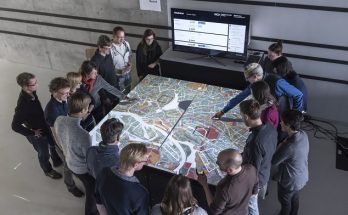International planning is an essential field that addresses the complexities of urbanization and development in a globalized world. As cities around the globe continue to grow and evolve, planners must consider a wide array of cultural, political, economic, and environmental factors that influence urban development. This field encompasses the study of diverse planning practices and policies, aiming to create sustainable, inclusive, and resilient urban environments.

One of the core aspects of international planning is understanding how urbanization processes differ across various cultural and political contexts. For instance, the rapid urbanization in emerging economies often presents distinct challenges and opportunities compared to the slower, more regulated growth seen in developed nations. Planners must navigate these differences, tailoring their approaches to suit the unique needs and circumstances of each region. This includes addressing issues such as housing shortages, infrastructure development, and the provision of basic services in rapidly growing cities.
Global cities, which are major nodes in the world economy, serve as key focal points in international planning. These cities, such as New York, Tokyo, London, and Shanghai, face complex challenges related to globalization, such as managing economic competitiveness, fostering innovation, and ensuring social equity. International planners study these urban centers to identify best practices and innovative solutions that can be applied to other cities facing similar issues.
International development is another critical component of this field. Planners work on projects that aim to improve living conditions in developing countries, focusing on sustainable development goals (SDGs) such as poverty reduction, access to clean water and sanitation, and climate action. This involves collaboration with international organizations, governments, and local communities to design and implement effective development strategies.
Furthermore, international planning emphasizes the importance of cross-cultural collaboration and knowledge exchange. Planners often engage in international forums, conferences, and workshops to share experiences, learn from global case studies, and develop a deeper understanding of international planning principles. This global perspective helps planners to think beyond local or national boundaries, fostering innovative solutions that can be adapted to various contexts.
In conclusion, international planning is a dynamic and multifaceted field that plays a crucial role in shaping the future of our cities. By addressing the diverse challenges of urbanization and development across different cultural and political landscapes, international planners strive to create sustainable, equitable, and resilient urban environments that can thrive in an increasingly interconnected world.




